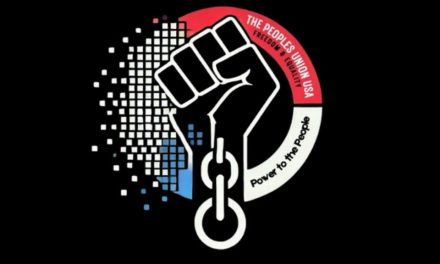By Tashi McQueen,
AFRO Political Writer,
Report For America Corps Member,
tmcqueen@afro.com
With wage garnishment hitting the poor harder than ever, a North Carolina House Democrat wants to set limits on how far a debt collector can go in getting what courts say they are owed.
Wage garnishment is a court-ordered carve-out of a paycheck to be applied to a debt or legal obligation. This includes medical bills, unpaid taxes, defaulted loans and credit card debt.
A bill introduced Dec. 5 if enacted would “protect $1,000 or 75 percent, whichever is greater, of take-home earnings per week from seizure,” according to Rep. Alma Adams (D-N.C.)
“Wage garnishment can push a family into poverty when they’re struggling to make ends meet,” the lawmaker said.
The federal government rules say debt collectors cannot take more than 25 percent of debtors’ weekly income. Wage garnishment cannot be taken if the pay period amount is less than $217.50.
“The Protecting Wages of Essential Workers Act was inspired by the calls and letters I’ve received from hardworking North Carolinians who’ve told me their money isn’t going far enough,” Adams told the AFRO. “Wage garnishments are pushing families deeper and deeper into financial instability. Our bill protects a greater portion of workers’ wages from garnishment so they can provide for themselves and their families.”
If the bill is passed, there will be more federal protections, allowing states to protect more of their citizens’ wages or entirely prohibit wage seizure for consumer debts. Entering judgment means the debtor must pay that money back through a court agreement.
Adams’s bill would also prevent workers from being fired for more than one wage seizure and stop predatory debt collectors from threatening jail time if debtors don’t pay.
Wage garnishment judgments can multiply throughout the debt, subjecting individuals to additional wages being withheld.
“Debt collectors should not be allowed to push working people into poverty,” Michael Best, staff attorney at National Consumer Law Center said. “Debt collectors also can’t be allowed to take us back to the days of debtors’ prisons.”
Studies show Black people can be especially vulnerable to wage garnishment.
Residents of majority Black neighborhoods experience approximately 40 percent more judgments than non-Black neighborhoods, according to a 2019 study by University of Pittsburgh economics researchers. Judgments must be acquired for debt collectors to legally take action in collecting their money through the court system.
They also found that judgment rates are 85 percent higher in majority Black neighborhoods versus in majority non-Black neighborhoods.
Black households have a median income of $24,100, compared to $189,100 for White families.
“Systemic racism continues to play a role in perpetuating cycles of poverty in communities of color,” according to Lucia Mattox, director of western states outreach and senior policy associate at the Center for Responsible Lending (CRL). “People of color are more likely to be contacted by debt collectors and impacted by lawsuits resulting in wage garnishment. Until we modernize federal law to improve consumer protections, the racial wealth gap will continue to deepen, and Americans will continue struggling to pay for necessities like food, rent and childcare.”
An Employee Benefit Research Institute (EBRI) study found that Black households have the most significant debt-to-asset ratio, or the value of debt divided by assets.
“We will work to pass this bill in the next Congress, and we look forward to working with our allies on both sides of the aisle to make sure all workers can provide for themselves and their families,” Adams said.
Help us Continue to tell OUR Story and join the AFRO family as a member –subscribers are now members! Join here!
The post Congresswoman Alma Adams introduces bill to control wage garnishment appeared first on AFRO American Newspapers .











